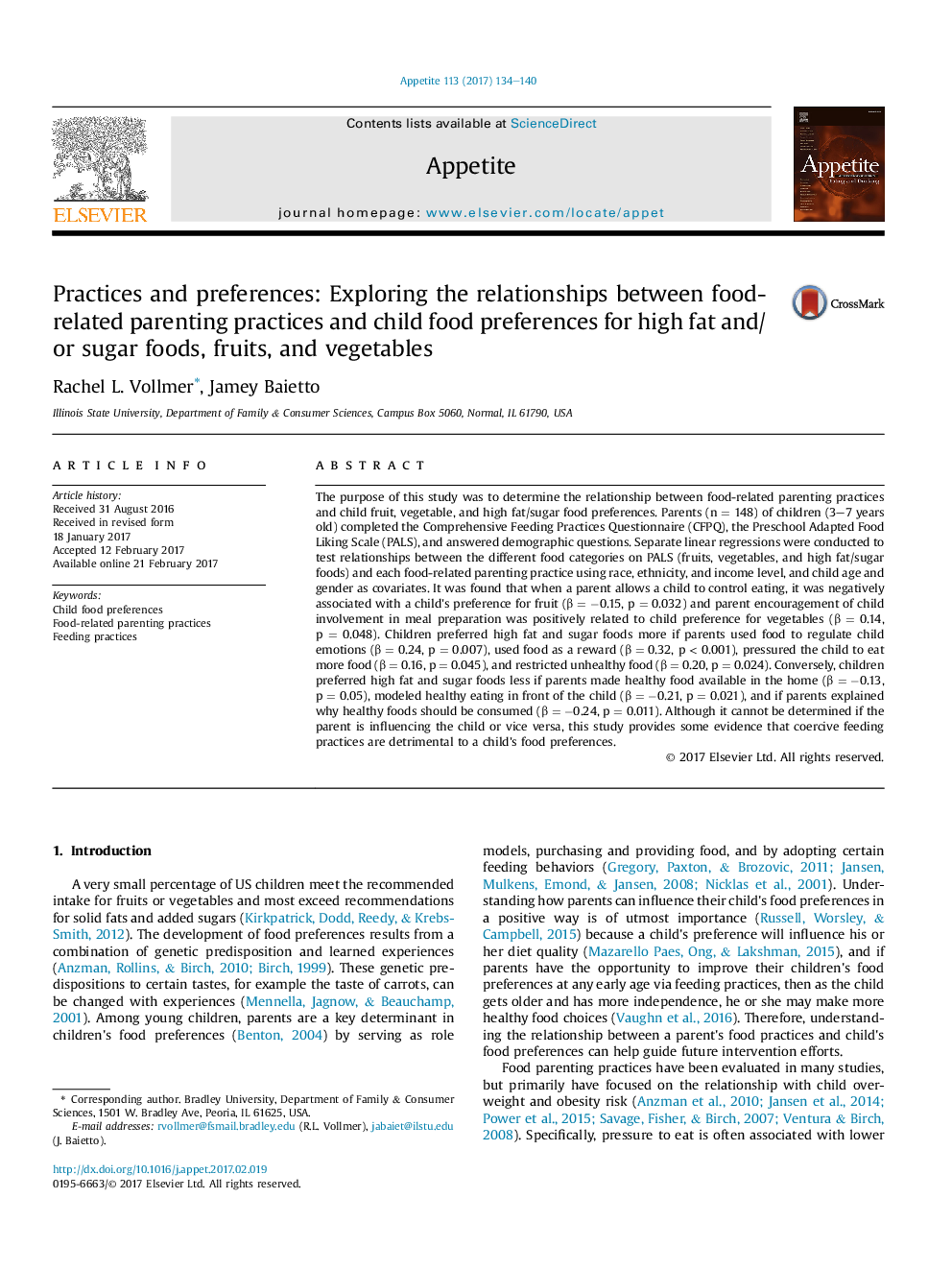| کد مقاله | کد نشریه | سال انتشار | مقاله انگلیسی | نسخه تمام متن |
|---|---|---|---|---|
| 5044171 | 1475367 | 2017 | 7 صفحه PDF | دانلود رایگان |
The purpose of this study was to determine the relationship between food-related parenting practices and child fruit, vegetable, and high fat/sugar food preferences. Parents (n = 148) of children (3-7 years old) completed the Comprehensive Feeding Practices Questionnaire (CFPQ), the Preschool Adapted Food Liking Scale (PALS), and answered demographic questions. Separate linear regressions were conducted to test relationships between the different food categories on PALS (fruits, vegetables, and high fat/sugar foods) and each food-related parenting practice using race, ethnicity, and income level, and child age and gender as covariates. It was found that when a parent allows a child to control eating, it was negatively associated with a child's preference for fruit (β = â0.15, p = 0.032) and parent encouragement of child involvement in meal preparation was positively related to child preference for vegetables (β = 0.14, p = 0.048). Children preferred high fat and sugar foods more if parents used food to regulate child emotions (β = 0.24, p = 0.007), used food as a reward (β = 0.32, p < 0.001), pressured the child to eat more food (β = 0.16, p = 0.045), and restricted unhealthy food (β = 0.20, p = 0.024). Conversely, children preferred high fat and sugar foods less if parents made healthy food available in the home (β = â0.13, p = 0.05), modeled healthy eating in front of the child (β = â0.21, p = 0.021), and if parents explained why healthy foods should be consumed (β = â0.24, p = 0.011). Although it cannot be determined if the parent is influencing the child or vice versa, this study provides some evidence that coercive feeding practices are detrimental to a child's food preferences.
Journal: Appetite - Volume 113, 1 June 2017, Pages 134-140
